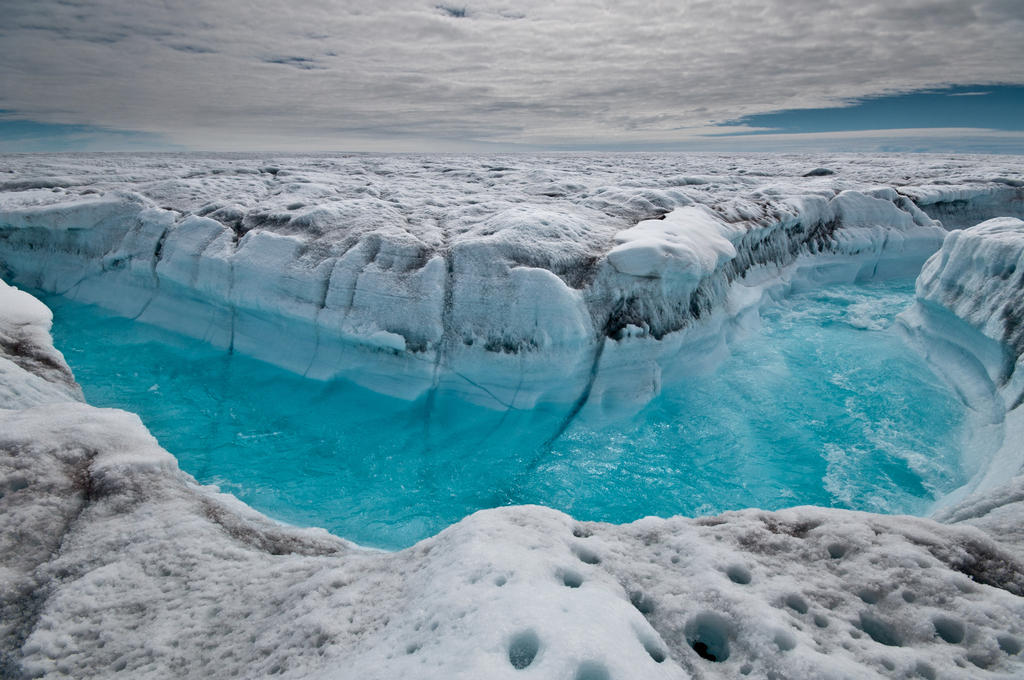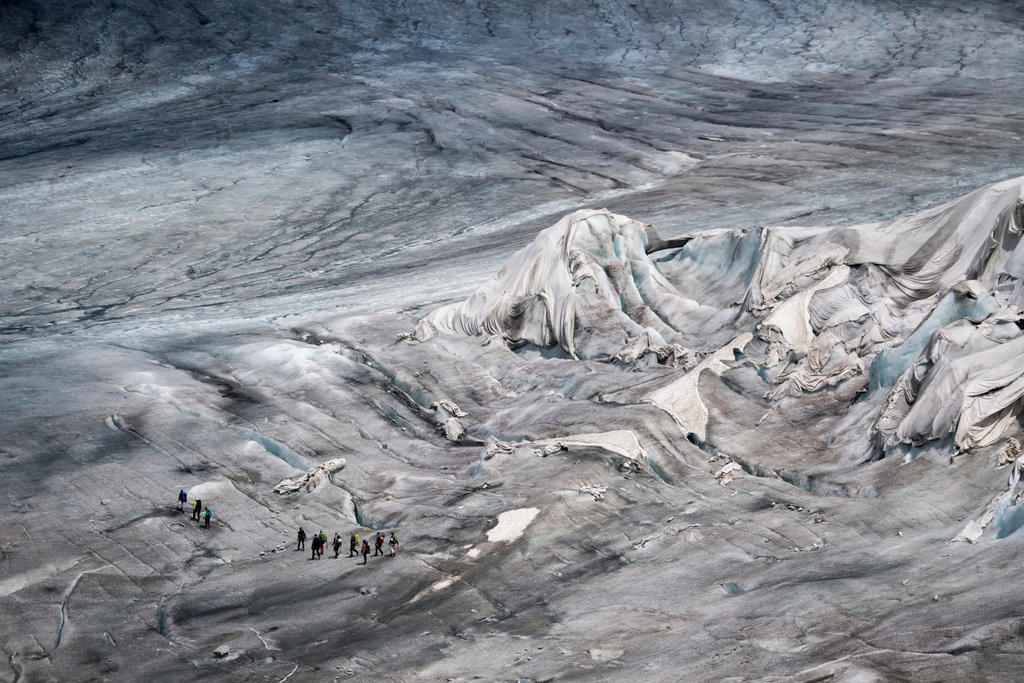
Swiss scientists to study microbial life in extreme environments
A four-year, Swiss-led research project on microbes found in glacier-fed streams will kick off on August 1. The researchers hope to better understand the adaptations that allow these organisms to thrive in such extreme conditions, and what it could mean for the environment if they disappear due to climate change.

The international research team, led by the Swiss Federal Institute of Technology in Lausanne (EPFL), will pluck viscous samples of microorganisms called biofilms from streams in the world’s largest mountain glacier systems, including the Himalayas, the Andes, Greenland, Scandinavia, Pamir, Kamchatka, Caucasus, New Zealand and the European Alps.
It will be the inaugural project of the new Center for Changing Alpine and Polar EnvironmentsExternal link at EPFL’s Sion campus in canton Valais.

More
How the Alps inform polar research
The researchers will study the genomes of these organisms to understand how they have adapted to their unhospitable habitats over time. They also hope to gain insight into the impacts of glacier melt on the microbes, and the effects their disappearance could have on glacier ecosystems like those found in the Swiss Alps.
“Glaciers and their streams have often been abundant on Earth. But today they are vanishing as a result of climate change. Glaciologists predict that 50% of the small glaciers in Switzerland will disappear within the next 25 years. The same holds true for their glacier-fed streams – and the ecosystems those streams support. We owe it to future generations to better understand the microbial life in these vanishing ecosystems,” said project leader Tom BattinExternal link of EPFL’s Stream Biofilm and Ecosystem Research Laboratory.
In the future, Battin hopes to establish an archive for glacier microbe DNA at the EPFL Valais-Wallis campus to provide a global repository for genetic information on these unique organisms, which can be studied further as gene sequencing technology advances.
The scientists, who will begin training for their field work this summer in the Swiss Alps, plan to embark on their first expedition in February 2019.

In compliance with the JTI standards
More: SWI swissinfo.ch certified by the Journalism Trust Initiative
















![The four-metre-long painting "Sonntag der Bergbauern" [Sunday of the Mountain Farmers, 1923-24/26] had to be removed by a crane from the German Chancellery in Berlin for the exhibition in Bern.](https://www.swissinfo.ch/content/wp-content/uploads/sites/13/2025/12/01_Pressebild_KirchnerxKirchner.jpg?ver=a45b19f3)











You can find an overview of ongoing debates with our journalists here . Please join us!
If you want to start a conversation about a topic raised in this article or want to report factual errors, email us at english@swissinfo.ch.